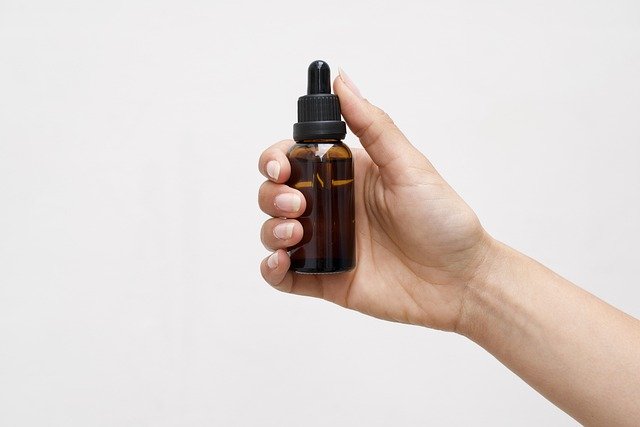In today’s fast-paced world, it’s no surprise that anxiety has become a common struggle. From mounting responsibilities to unpredictable challenges, the pressure can feel relentless. Anxiety, in small doses, is our body’s natural response to stress—keeping us sharp and alert. But when it becomes persistent and overwhelming, it can take a toll on both mental and physical well-being. While medication and therapy are powerful tools in managing anxiety, many people are turning to natural remedies for additional support. If you’re seeking a gentle, holistic approach, here are seven effective natural strategies to soothe your mind and body.
1. Move Your Body: The Power of Exercise
Exercise isn’t just for staying in shape—it’s a potent antidote to anxiety. Physical activity stimulates the production of endorphins, the brain’s natural mood elevators. It also helps regulate stress hormones like cortisol and improves overall sleep quality.

Whether it’s a brisk walk in the park, a heart-pumping cycling session, or a grounding yoga practice, consistent movement creates a ripple effect on your emotional state. The key isn’t intensity but regularity. Find an activity you enjoy, and let it become your sanctuary.
2. Aromatherapy: Healing Through Scent
Sometimes, peace is just a breath away. Aromatherapy, the use of essential oils extracted from plants, has long been celebrated for its calming effects on the nervous system. Scents like lavender, chamomile, and bergamot are particularly known for their ability to reduce anxiety and promote relaxation.

Diffuse them in your home, add a few drops to a warm bath, or apply diluted oils to your pulse points. Even a few mindful inhalations can create a powerful shift in your mood.
3. Herbal Helpers: Nature’s Calming Companions
For centuries, herbs have been used to ease mental distress and encourage tranquility. Among the most trusted are passionflower, valerian root, and kava. These herbs are believed to influence neurotransmitters like GABA, which plays a crucial role in calming the brain.

However, natural doesn’t always mean risk-free. Herbal supplements can interact with medications and may not be suitable for everyone. Always check with a healthcare provider before introducing any new supplement into your routine.
4. CBD Oil: A Modern Approach to Ancient Relief
Derived from the hemp plant, CBD (cannabidiol) oil is gaining popularity for its potential to alleviate anxiety without the psychoactive effects associated with THC. By interacting with the endocannabinoid system—a network that helps regulate mood, sleep, and appetite—CBD may provide a sense of calm and balance.

Preliminary studies and anecdotal reports are promising, but like any supplement, it’s essential to ensure quality and consult a professional before use, especially if you’re on other medications.
5. Feed Your Calm: The Role of Diet
What we eat doesn’t just fuel our bodies—it influences our minds. Highly processed foods, excessive caffeine, and alcohol can spike anxiety levels. On the flip side, nutrient-rich foods can be allies in the fight against stress.
Magnesium-rich foods like spinach, almonds, and pumpkin seeds can relax muscles and calm the nervous system. Foods containing tryptophan, such as turkey and oats, support the production of serotonin, the “feel-good” neurotransmitter. Eating mindfully and staying hydrated can significantly affect how we feel day-to-day.
6. Mindfulness: Reconnecting with the Present
Mindfulness is more than a trend—it’s a transformative practice. By grounding ourselves in the present moment, we can observe anxious thoughts without being swept away by them. This conscious awareness allows us to respond to stress with clarity and calm.

Practices like meditation, breathing exercises, or even mindful walking can anchor your attention and reduce anxiety’s grip. You don’t need hours—just a few minutes a day can create noticeable changes over time.
7. Sleep: The Unsung Hero of Mental Health
Poor sleep and anxiety often form a vicious cycle—each fueling the other. Getting consistent, restorative sleep is one of the most effective ways to regulate mood and manage anxiety.

Create a nighttime ritual that encourages relaxation. This might include turning off screens an hour before bed, keeping your room cool and quiet, or using a white noise machine. Techniques like progressive muscle relaxation or a brief meditation session can also help ease your transition into slumber.
Finding Your Balance
There is no one-size-fits-all approach to anxiety. What calms one person might not work for another, and it’s often a combination of habits that creates lasting relief. These natural remedies are not meant to replace professional medical advice, but to complement your mental wellness journey.
By integrating small, intentional changes into your daily life, you can cultivate a more peaceful mind and a more resilient body—one breath, one choice, and one step at a time.

